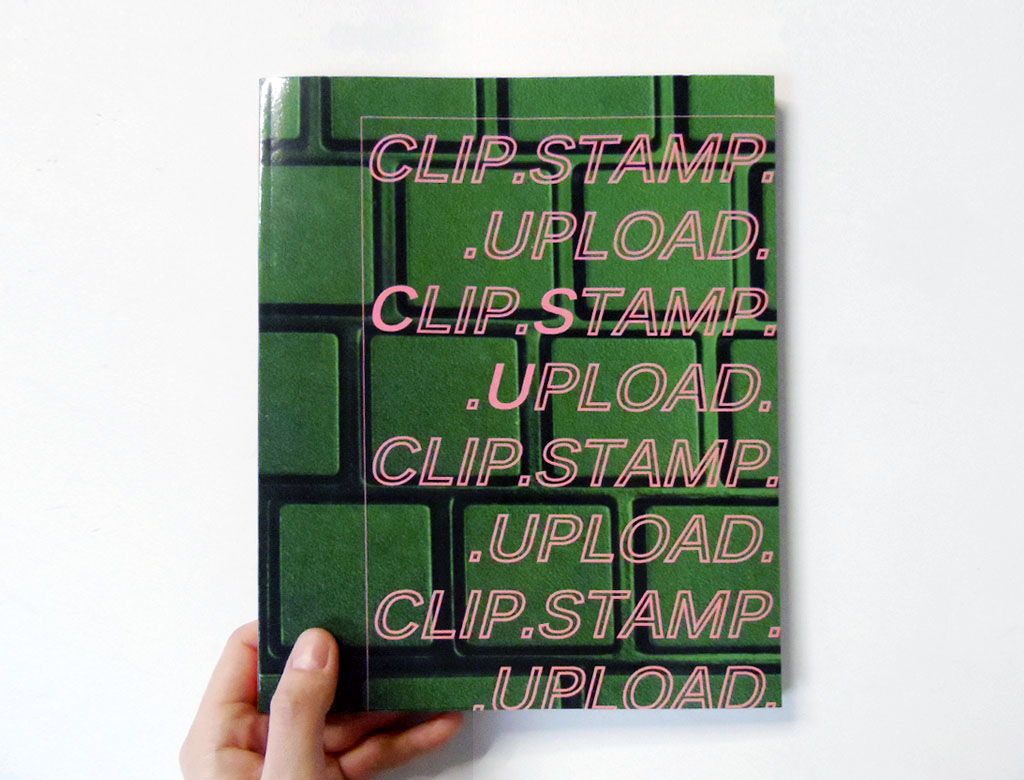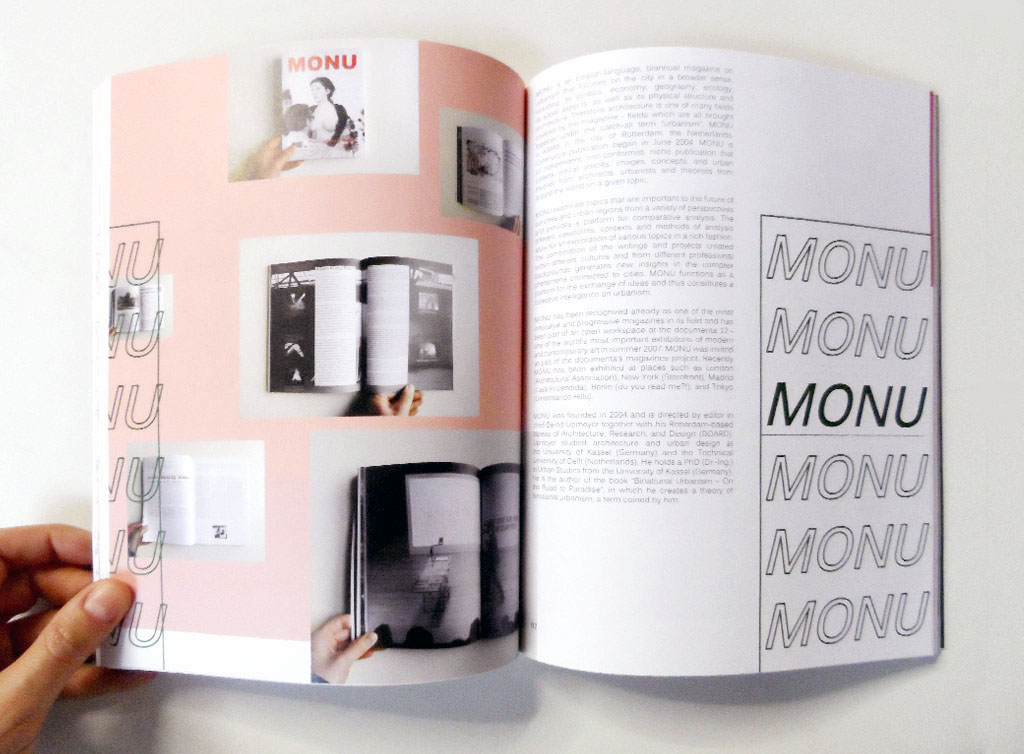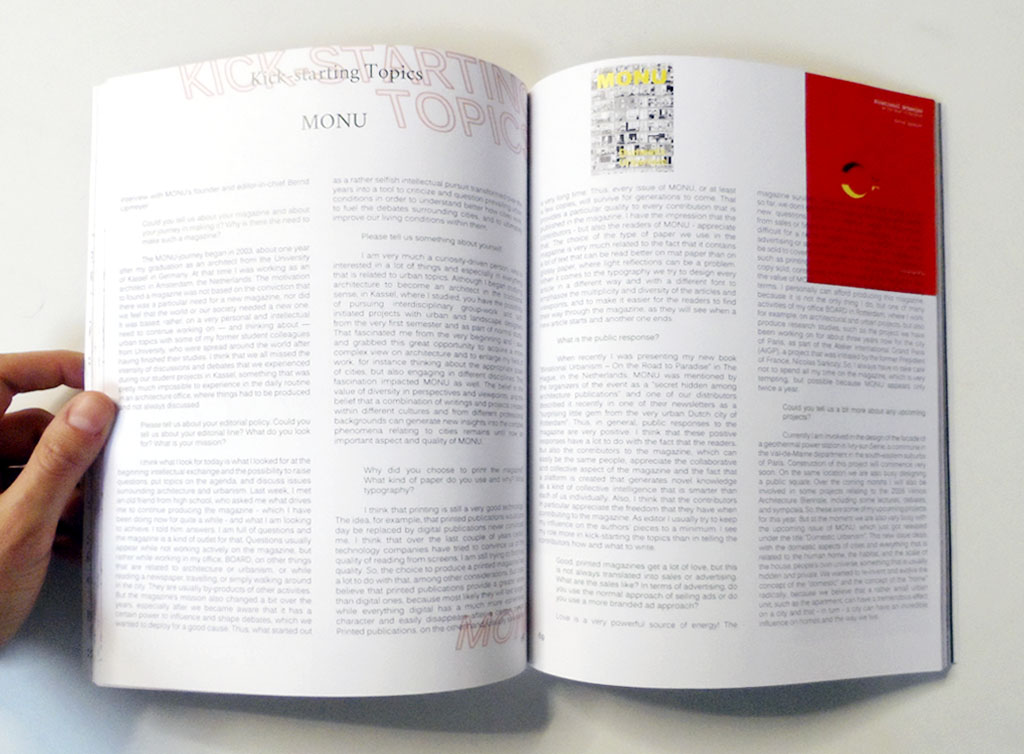30-03-18 // INTERVIEW WITH BERND UPMEYER PUBLISHED IN “CLIP.STAMP.UPLOAD”

The Genoa-based independent collectives ICAR65 and Burrasca published an interview with Bernd Upmeyer about MONU Magazine, entitled “Kick-starting Topics”, in their publication “Clip.Stamp.Upload”.
Excerpts from the interview:
[…]
Please tell us about your editorial policy. Could you tell us about your editorial line? What do you look for? What is your mission?
Bernd Upmeyer: I think what I look for today is what I looked for at the beginning: intellectual exchange and the possibility to raise questions, put topics on the agenda, and discuss issues surrounding architecture and urbanism. Last week, I met an old friend from high school, who asked me what drives me to continue producing the magazine – which I have been doing now for quite a while – and what I am looking to achieve. I told him: answers. I am full of questions and the magazine is a kind of outlet for that. Questions usually appear while not working actively on the magazine, but rather while working in my office, BOARD, on other things that are related to architecture or urbanism, or while reading a newspaper, travelling, or simply walking around in the city. They are usually by-products of other activities. But the magazine’s mission also changed a bit over the years, especially after we became aware that it has a certain power to influence and shape debates, which we wanted to deploy for a good cause. Thus, what started out as a rather selfish intellectual pursuit transformed over the years into a tool to criticize and question prevailing urban conditions in order to understand better how cities work, to fuel the debates surrounding cities, and to ultimately improve our living conditions within them.
[…]
What is the public response?
BU: When recently I was presenting my book “Binational Urbanism – On the Road to Paradise” in The Hague, in the Netherlands, MONU was mentioned by the organizers of the event as a “secret hidden among architecture publications” and one of our distributors described it recently in one of their newsletters as a “surprising little gem from the very urban Dutch city of Rotterdam”. Thus, in general, public responses to the magazine are very positive. I think that these positive responses have a lot to do with the fact that the readers, but also the contributors to the magazine, which can easily be the same people, appreciate the collaborative and collective aspect of the magazine and the fact that a platform is created that generates novel knowledge as a kind of collective intelligence that is smarter than each of us individually. Also, I think that the contributors in particular appreciate the freedom that they have when contributing to the magazine. As editor I usually try to keep my influence on the authors’ pieces to a minimum. I see my role more in kick-starting the topics than in telling the contributors how and what to write…
… the entire interview can be read in Writings.

